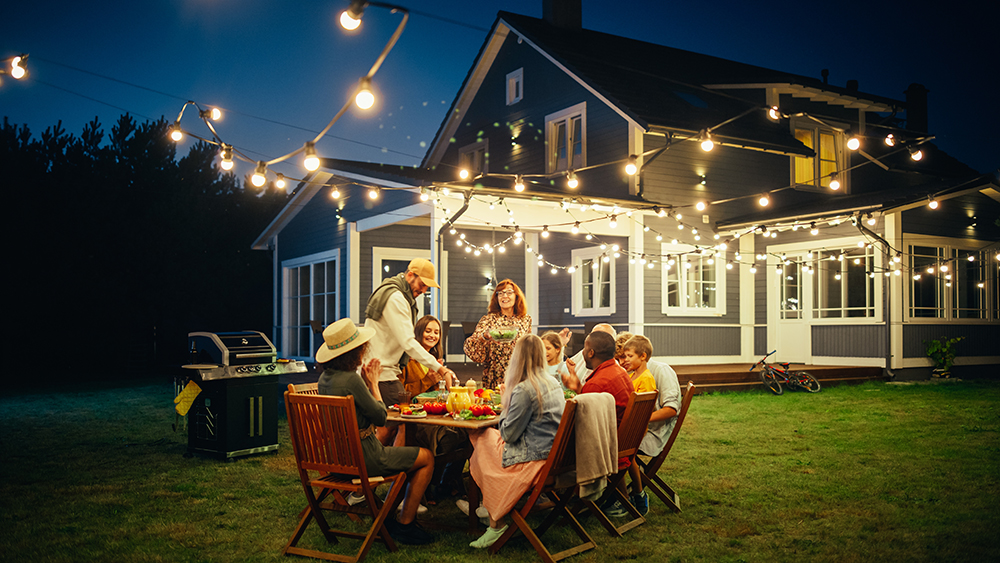From backyard barbecues to holiday weekend picnics, outdoor dining is a summer tradition in Louisiana.
While grilled meats, potato salad, and chilled desserts are seasonal staples, warm weather and improper food handling can quickly turn your favorite dishes into sources of foodborne illness.
At Thibodaux Regional Urgent Care, we often see patients with symptoms like nausea, vomiting, diarrhea, or dehydration after outdoor events. In many cases, the cause is preventable with a few simple food safety tips.
Whether hosting a gathering or bringing a dish to share, here’s how to keep your summer meals safe and when to seek urgent care if something doesn’t sit right.
What Is a Foodborne Illness?
Foodborne illness, commonly known as food poisoning, occurs when you consume food or beverages contaminated with harmful bacteria, viruses, parasites, or toxins.
These pathogens multiply quickly in improperly handled or undercooked food and can cause symptoms that range from mild discomfort to severe dehydration.
Common sources include:
- Raw or undercooked meat, poultry, or seafood.
- Unwashed produce.
- Dairy or egg-based dishes left out too long.
- Contaminated water or ice.
- Improperly cleaned cooking surfaces or utensils.
Most foodborne illnesses can be avoided with proper food safety practices, but the risk increases during warmer months.
Signs of Foodborne Illness
Symptoms of foodborne illness can appear within hours. In rare cases, they may take a few days to develop.
Common symptoms include:
- Nausea or vomiting.
- Diarrhea.
- Stomach cramps.
- Fever or chills.
- Headache.
- Weakness or fatigue.
While many cases are mild and resolve with rest and hydration, some require medical attention.
Why Summer Increases the Risk of Foodborne Illness
Bacteria that cause food poisoning thrive in warm, moist environments.
During summer months, food can quickly enter the “danger zone,” between 40°F and 140°F, where harmful bacteria multiply rapidly.
Without proper refrigeration or cooking temperatures, your favorite BBQ or potluck item could become a health risk within hours.
Common food poisoning culprits include:
- Grilled meats left out too long before or after cooking.
- Mayonnaise-based salads (like potato or coleslaw) not kept cold.
- Undercooked poultry, burgers, or seafood.
- Cross-contamination from unwashed hands or surfaces.
Outdoor Food Safety Tips to Follow
Stay safe this summer with these practical tips for summer food safety:
1. Keep Hot Foods Hot
Use insulated containers or warming trays to keep cooked meats at or above 140°F. Serve hot foods immediately, and don’t let them sit out for more than two hours (or just one hour if it’s over 90°F outside).
2. Keep Cold Foods Cold
Store cold dishes in a cooler with plenty of ice or cold packs. Use a thermometer to ensure food stays at or below 40°F. Consider serving cold items from small containers and replenishing them from the cooler as needed.
3. Don’t Mix Raw and Cooked Foods
Never reuse plates, utensils, or marinades in contact with raw meat, seafood, or poultry unless thoroughly washed.
4. Wash Your Hands Often
Bring hand sanitizer or moist towelettes if running water isn’t available outdoors. Encourage hand cleaning before handling food or eating.
5. Use a Food Thermometer
Don’t guess. Ensure meats are fully cooked by checking internal temperatures:
- Poultry: 165°F.
- Ground meats: 160°F.
- Beef, pork, fish: 145°F.
6. When in Doubt, Throw It Out
If you’re unsure how long a dish has been sitting out, it’s safer to toss it. The risk of foodborne illness isn’t worth keeping questionable leftovers.
When to Visit Thibodaux Regional Urgent Care for Food-Related Conditions
Visit urgent care if you experience:
- Vomiting or diarrhea lasting more than 24 hours.
- Inability to keep fluids down.
- Signs of dehydration (dry mouth, dizziness, dark urine).
- Fever over 101.5°F.
- Blood in your stool or vomit.
- Food poisoning symptoms combined with existing health conditions or pregnancy.
Our medical team can provide fluids, medications, and testing as needed to help you recover safely and comfortably.
Enjoy Outdoor Gatherings Safely—We’re Here When You Need Us
The best part of summer dining is sharing good food with the people you care about. With a few simple precautions, you can help keep everyone safe, satisfied, and out of urgent care.
If foodborne illness symptoms do arise, Thibodaux Regional Urgent Care is here to help. We’re open seven days a week from 9 a.m. to 8 p.m., with no appointment needed.
Call the location nearest you or walk in today for fast, compassionate care when you need it most.




